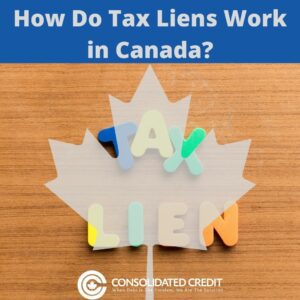Occasionally, taxpayers encounter incorrect tax assessments. Leading to them owing a large amount of money made up of mostly penalties and interest. With these excessive fees coming from an incorrect assessment, many taxpayers will feel trapped and unable to proceed. Luckily, a Remission Review gives them a potential way out. A Remission Review is a provision in the Income Tax Act. Taxpayers can use this provision to have their taxes reassessed so they are fair and just.
This article will go over the basics of a Remission Review so you can be armed with the knowledge necessary to get through the process.
What is a Remission Review?
The Canada Revenue Agency describes a remission as “an extraordinary measure.” Under this measure, the government can provide full or partial relief from a tax or penalty, or other debt. This is available only under certain circumstances when such relief isn’t available under the law.
Remissions are granted based on official CRA guidelines.
Why do we have a Remission Review process in place?
There are many cases in which the Canadian Tax Act does not allow for adequate relief. The act’s application process and terms that can also lead to unjust results. Remission Reviews area way to rectify these situations.
The act applies to taxpayers facing circumstances where the tax collection is unreasonable or unjust. The process assists those trying to find a solution to unjust tax payments, this is known as a remission or remission order. Remissions are under subsection 23 2 of the Financial Administration Act.
Applying for a Remission Review is the last resort so it is essential that you know the ins and outs before applying.
There are no second chances with remission reviews. It is essential that any remission application adheres to the Remission Guide fully. It’s best if applications are drafted by those who have an understanding of the Income Tax Act.
When can you request a Remission Review?
If you are a taxpayer who has exhausted all other avenues in the Income Tax Act, there is still hope. Even if the time period for a tax appeal has expired, you can turn to the Financial Administration Act which includes the Remission Review process. This act gives the Canadian government the authority to forgive a tax debt. The Minister of National Revenue leads this process.
In general, remission orders are only recommended by the Minister once all other avenues are exhausted. This includes objections, appeals, and taxpayer relief requests. Also, applications must show that the taxpayer meets one of the following circumstances:
Extreme hardship
Extreme hardship eludes to the income and resources of the taxpayer. If the taxpayer does not have the capital or resources to resolve the debt, they may be applicable for a remission review.
To determine eligibility they follow the demographic guidelines established by Statistics Canada. Extreme hardship is when taxpayers’ income meets low-income standards for their demographic. It should be present when applying and normally will have existed when the original tax debt arose.
Financial setback coupled with extenuating factors
A financial setback is less severe than extreme hardship and can be used to request a Remission Review if it’s coupled with an extenuating circumstance. Examples given by CRA in the Remission Guide are circumstances beyond a person’s control and taxpayer error. A circumstance outside of a taxpayer’s control refers to something specific to that taxpayer, such as health problems.
Unintended results of the legislation
An unintended result of the legislation refers to when a taxpayer establishes that what they owe is an unintended consequence of the Tax Act. The tax result must be unfair and clearly against the scheme of the particular provision in question.
Incorrect action or advice by CRA
This circumstance requires written evidence of the incorrect CRA action or advice. This process involves an investigation to determine if the advice was incorrect at the time it was given. Any subsequent changes to the law are not considered. A taxpayer seeking remission under this circumstance must act reasonably in their efforts to resolve the issue.
The factors listed here remain broad to allow Canadian tax lawyers to fit a given taxpayer’s circumstances under one of the categories. To have a remission review accepted, you need a strong understanding of the Income Tax Act. This includes the obligations it imposes on taxpayers and CRA alike.
Who can request a Remission Review?
There are guidelines as to who can request a remission review. To be applicable, you must, of course, pay taxes.
Those who may request a remission review include:
- An individual
- A corporation
- A small business
- A sole proprietor
- An employer or payer
- A partnership
- A trust
- An estate
- An organization
- A registered charity
Taxpayers are applicable if they have paid or owe assessed federal amounts, such as:
- Federal income tax
- The Goods and Services Tax (GST) or Harmonized Sales Tax (HST)
- Excise taxes or duties
- Interest
- Penalties
- Other debt
How to appeal a Remission Review
If a taxpayer has gone through with a Remission Review and the CRA declines it, they can request a judicial review. A judicial review is the appeal process of the Federal Court. The court analyzes the facts of the case and determines if the CRA exercised its discretion properly. When the court decides in the taxpayer’s favour, the matter is referred back to the CRA for reconsideration.
Very few requests result in remission. A lot goes into deciding whether it’s in the public interest to allow remission. This includes:
- Maintaining the integrity of the legislative appeals process
- The self-assessing nature of Canada’s tax system
- Taxpayers’ responsibility to understand and meet their tax obligations
- Fairness to other Canadians
Conclusion
Before going ahead with a Remission Review, you must first have a good understanding of the process. You will need a comprehensive application that falls under the Remission Guide. Only those with an understanding of the Income Tax Act should draft an application. If your application is not sufficient, you will lose your opportunity, as you only have one chance.
With this in mind, it is imperative to get help from a professional with in-depth knowledge of the Income Tax Act.
If you’re struggling financially because you owe back taxes and your circumstances don’t fall under remission requirements, Consolidated Credit can help. Our Credit Counsellors can put together a plan to get you back on your feet.




